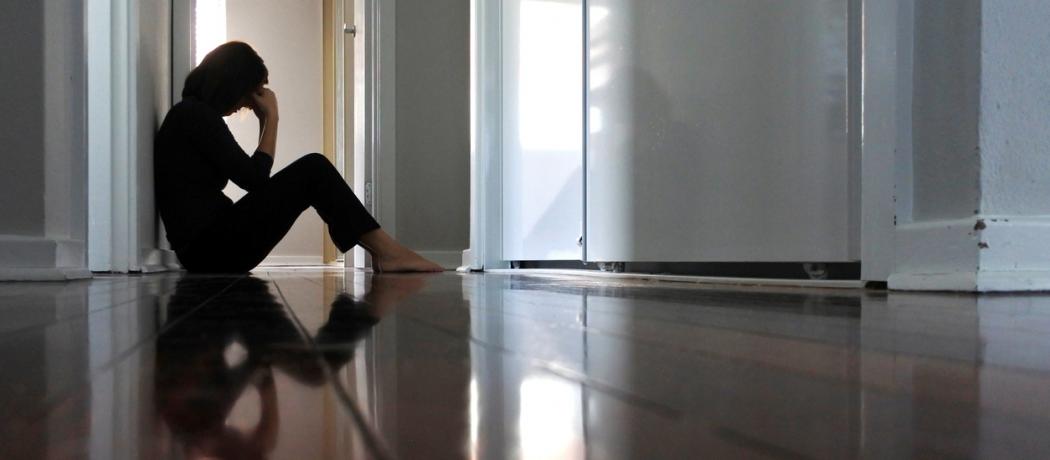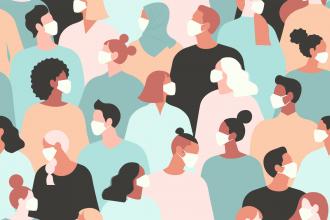Being as I am in the 90-plus age category, I had the privilege to receive the Pfizer vaccine against the COVID-19 virus some time ago. As I was searching for more information about the biochemistry of the vaccines and the related complex manufacturing processes, I came across an article that recommends a “vaccine” to prevent or fight off the pandemic that is running parallel to COVID-19: mental health issues.
The article suggests that the mental health impacts from this pandemic will outlive COVID-19’s physical medical issues. Whereas so far younger people seem to be at lower risk of severe health outcomes, current research suggests that the age-related trends might be inverted when it comes to mental health.
In a recent Canadian study, 36% of people 15 to 34 years old, 27% of people 35 to 54 years old, and 14.5% of people 55 and older reported clinically significant levels of anxiety related to the pandemic. In the short term these issues can impact quality of life and daily functioning at any age, and in the longer term they may be responsible for illness onset and death. Stress can cause feelings of fear, anger, sadness, worry, and frustration. It may change appetite, energy levels, and interests. Difficulties concentrating, making decisions, and sleeping are also common. Chronic health problems; worsening of other mental health issues; or misuse of tobacco, alcohol and other substances, and medications may become a problem.
Explaining the age-related mental health issues seen during this pandemic, the researchers suggest that perhaps older adults have developed cognitive and behavioral strength over years of life experiences that allows them to have more emotional control. Life experience could serve as a learned “antibody” that may protect them from some mental health issues. Perhaps a concentrated form of this wisdom could be made available to younger people as well?
The ingredients in a mental health “vaccine” would be part of what makes up cognitive behavioral therapy (CBT) provided by therapists. Simply stated, the basic premise of CBT is that mental disorders and psychological distress are maintained by maladaptive cognitive factors. The efficacy of CBT in relieving general stress has been demonstrated in many studies. Most people do not have access to in-depth professional resources. The “vaccine” form of CBT would be smartphone- or Internet-based and specific for issues related to the pandemic. Two basic ingredients are likely needed in this virtual vaccine. One would be cognitive in nature to replace biased thoughts about the pandemic with more realistic ones. The other ingredient would be a youth-related behavioral guide for times of social isolation to encourage activities that bring a sense of accomplishment while also providing enjoyment.
Is this a wild dream? No! There are already well-developed analyses suggesting positive results of smartphone, Internet, and computer-based CBT for anxiety and depression in youth. The reviewed studies did not focus on the mental health issues related to the current pandemic; this is the task for the “vaccine” creators.
—George Szasz, CM, MD
Suggested reading
The Conversation. COVID-19’s parallel pandemic: Why we need a mental health “vaccine.” Accessed 22 April 2021. https://theconversation.com/covid-19s-parallel-pandemic-why-we-need-a-mental-health-vaccine-155198.
El-Gabalawy R, Sommer JL. “We are at risk too”: The disparate mental health impacts of the pandemic on younger generations: Nous sommes aussi à risque: Les effets disparates de la pandémie sur la santé mentale des générations plus jeunes. Can J of Psychiatry 2021. doi:10.1177/0706743721989162.
Gillihan S. Discovering new options: Self-help cognitive behavioral therapy. National Alliance on Mental Illness. 1 November 2016. Accessed 22 April 2021. www.nami.org/Blogs/NAMI-Blog/November-2016/Discovering-New-Options-Self-Help-Cognitive-Behav.
Hofmann SG, Asnaani A, Vonk IJJ, et al. The efficacy of cognitive behavioral therapy: A review of meta-analyses. Cognit Ther Res 2012:36:427-440.
Marciniak A, Shanahan L, Rohde J, et al: Standalone smartphone cognitive behavioral therapy-based ecological momentary interventions to increase mental health: Narrative review. JMIR MHealth Uhealth 2020;8:e19836.
This post has not been peer reviewed by the BCMJ Editorial Board.



A brief introduction of hope and a potential tangible strategy for the younger population. Very interesting and informative.